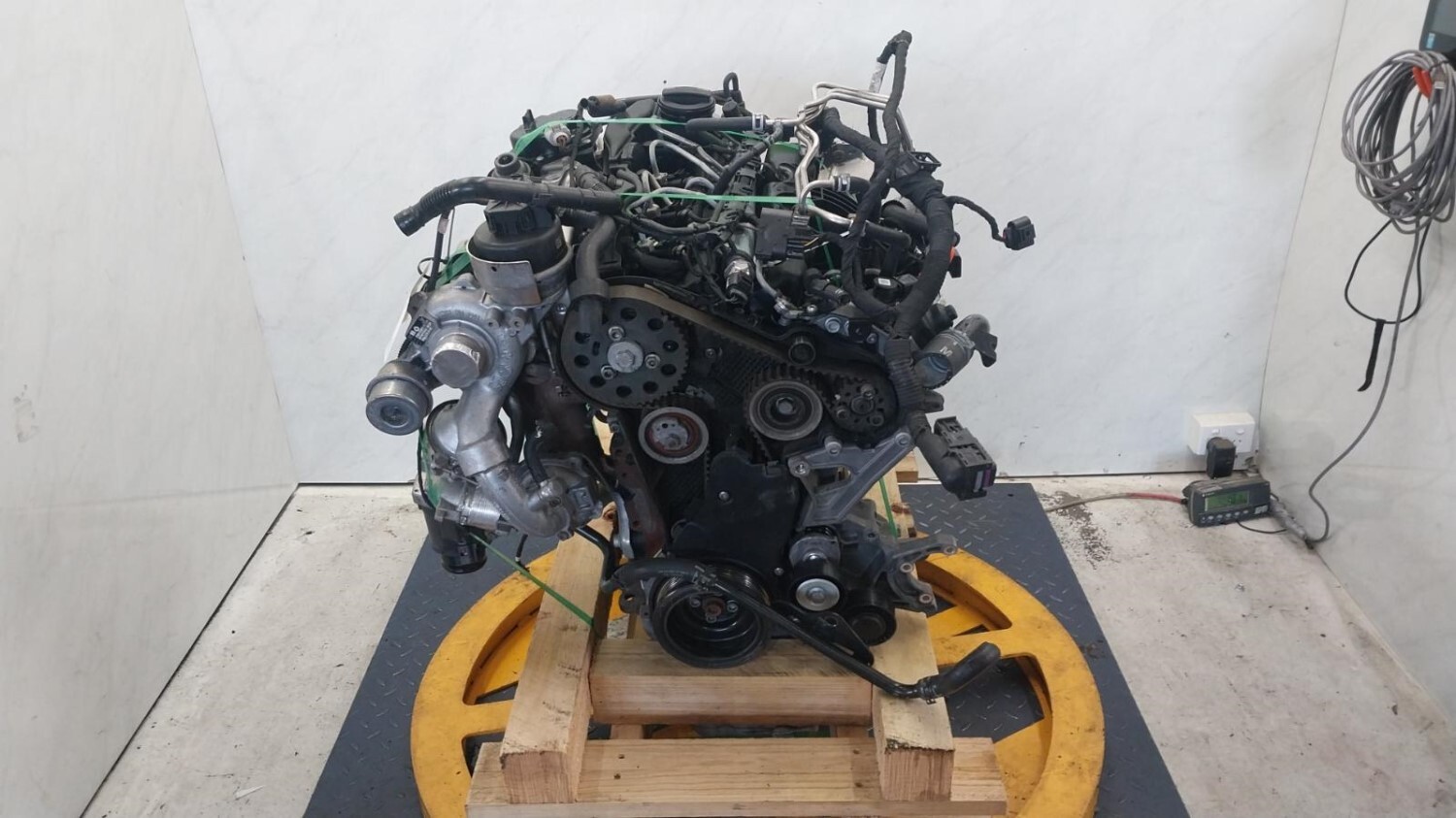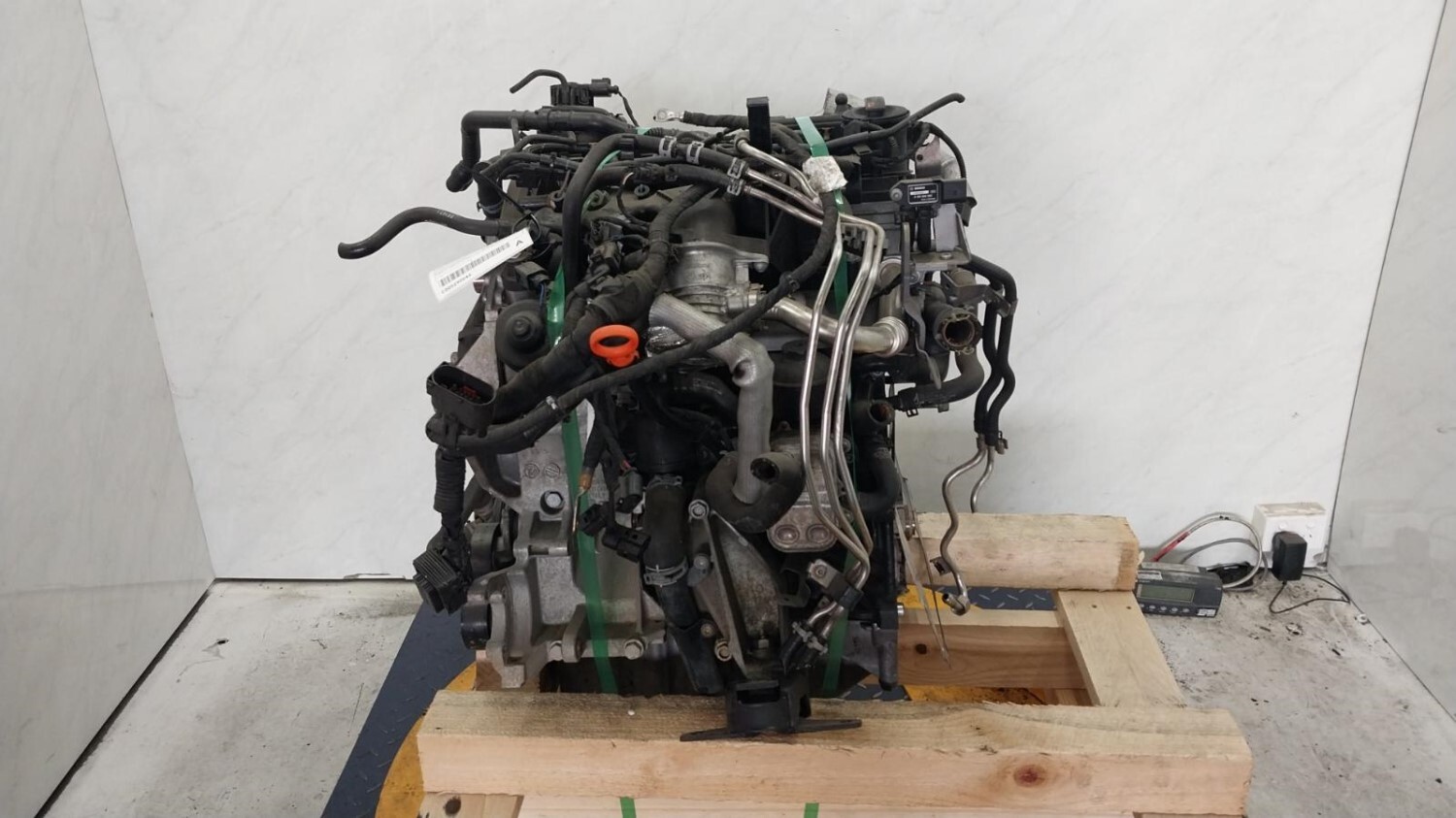Budget-friendly Amarok Engine for Sale-- Enhance Your Vehicle's Performance with Us
Browsing the Process of Engine Option: Secret Variables to Think About
The process of engine selection is a diverse endeavor that demands careful assessment of a number of important variables to ensure alignment with operational goals. Performance requirements, gas efficiency, and budgetary restrictions are simply the beginning; considerations around environmental impact and upkeep assistance play a crucial duty in the decision-making structure. Recognizing exactly how each of these aspects engages can considerably influence the effectiveness and long life of your investment. The intricacies of each element may not be promptly noticeable, motivating additional exam of how to tactically browse this complex landscape.
Performance Needs
When selecting an engine, it is critical to establish clear efficiency requirements that align with the desired application. Performance requirements include a series of factors, including power result, torque characteristics, and responsiveness, which need to be customized to the details needs of the lorry or machinery concerned.
Power output, generally determined in horsepower, determines the engine's capability to move a car or perform a job efficiently. Torque, on the various other hand, is necessary for applications requiring solid initial velocity or heavy lifting capabilities. An understanding of the operational atmosphere is additionally important; as an example, engines developed for off-road applications may call for different efficiency features compared to those planned for freeway usage.
Furthermore, take into consideration the operational load and duty cycle, as these elements influence the engine's longevity and integrity. In high-load circumstances, a durable engine layout may be needed to protect against premature wear or failing.
Gas Performance Considerations
While performance requirements are crucial, fuel efficiency is just as important in the engine option process, as it directly impacts operating expenses and ecological sustainability. Fuel-efficient engines take in much less fuel per unit of work carried out, which not only lowers total expenditure however also lessens greenhouse gas exhausts. As companies progressively focus on sustainability, choosing an engine that maximizes fuel effectiveness can boost business duty and conformity with environmental guidelines.
When evaluating fuel performance, it is necessary to consider the engine's style and technology - amarok engine for sale. Technologies such as turbocharging, straight fuel injection, and crossbreed systems can considerably improve fuel economic situation. Furthermore, comprehending the operating conditions and task cycles of the engine application is important; engines may execute differently under differing tons and speeds
In addition, suppliers frequently provide fuel usage data that can be used to contrast numerous engine alternatives. It is recommended to examine these specs in real-world circumstances to make sure accuracy. Lastly, the type of fuel used can also affect gas performance; alternate gas might use far better performance and lower emissions. In recap, gas performance is a multi-faceted consideration that calls for extensive evaluation throughout the engine selection procedure.
Budget and Price Analysis
Spending plan and price analysis offers as an important component in the engine selection process, affecting both temporary investments and long-term operational expenditures. When evaluating possible engines, it is necessary to take into consideration not only the initial acquisition cost yet additionally the overall cost of possession, which includes installation, upkeep, fuel consumption, and possible downtime.
A comprehensive evaluation must begin with the upfront costs related to the engine, including required adjustments or ancillary devices. Nevertheless, focusing entirely on preliminary expenditures may cause misdirected choices. Evaluating operating prices over the engine's lifespan is just as vital, as extra expensive engines might supply remarkable fuel efficiency or lowered maintenance requirements, ultimately bring about set you back savings.

Environmental Impact Elements
Comprehending environmental effect elements is essential in the engine selection process, as sustainability considerations have become increasingly essential for both regulatory compliance and company duty. Organizations has to evaluate the exhausts generated by different engine kinds, including carbon dioxide, nitrogen oxides, particulate issue, and unburned hydrocarbons. These exhausts add significantly to air contamination and environment modification, requiring a cautious analysis of the engine's ecological footprint.
Additionally, fuel type plays an essential function in ecological influence. Engines powered by sustainable power sources, such as biofuels or hydrogen, often tend to have a reduced ecological influence contrasted to traditional fossil gas. Furthermore, the lifecycle assessment of the engine, from manufacturing with procedure to disposal, must be thought about to understand the complete range of its ecological effects.

Upkeep and Support Choices
When choosing an engine, the schedule of maintenance and assistance choices is an important consideration that can considerably impact functional effectiveness and durability. Comprehensive maintenance intends ensure that the engine runs at peak efficiency and decreases unexpected downtimes. It is vital to examine the maker's support network, including the availability of certified technicians and service facilities.
Evaluating the ease of access of extra parts is additionally vital. A reputable supply chain for parts can reduce lead times for repairs and maintenance, thereby improving overall efficiency. Furthermore, consider the convenience of getting technological documents and training resources, which are crucial for ensuring that personnel are well-equipped to take care of regular and emergency situation scenarios.
An additional essential aspect is the warranty and solution arrangements offered by the manufacturer. These agreements can offer comfort and monetary Full Report security versus unpredicted concerns. Inevitably, a proactive method to maintenance and support not only expands the life of the engine yet also adds to the total success of the operation. Careful consideration of these aspects will certainly cause notified decisions that line up with operational objectives and budget plans.
Final Thought
Finally, the process of engine selection necessitates a detailed assessment of numerous vital factors, including efficiency demands, fuel performance, spending plan restraints, ecological effect, and upkeep assistance. By diligently analyzing these components, notified choices can be made that line up with operational goals and sustainability goals. Ultimately, a critical approach to engine choice will make sure optimal efficiency and durability while dealing with ecological and monetary factors to consider successfully.
While performance demands are crucial, gas efficiency is just as essential in the engine option process, as it straight affects operating expenses and ecological sustainability. As organizations progressively focus on sustainability, picking an engine that optimizes gas efficiency can improve company responsibility and compliance with ecological laws.
Additionally, comprehending the operating problems and duty cycles of the engine application is crucial; engines might perform in a different way under differing rates and lots. (amarok engine for sale)
Assessing operating prices over the engine's lifespan is similarly important, as extra expensive this article engines may supply exceptional gas performance or reduced maintenance requirements, eventually leading to cost savings.
In final thought, the procedure of engine option demands an extensive examination of numerous essential factors, including performance demands, fuel effectiveness, budget plan restrictions, ecological influence, and upkeep click to investigate assistance. - amarok engine for sale